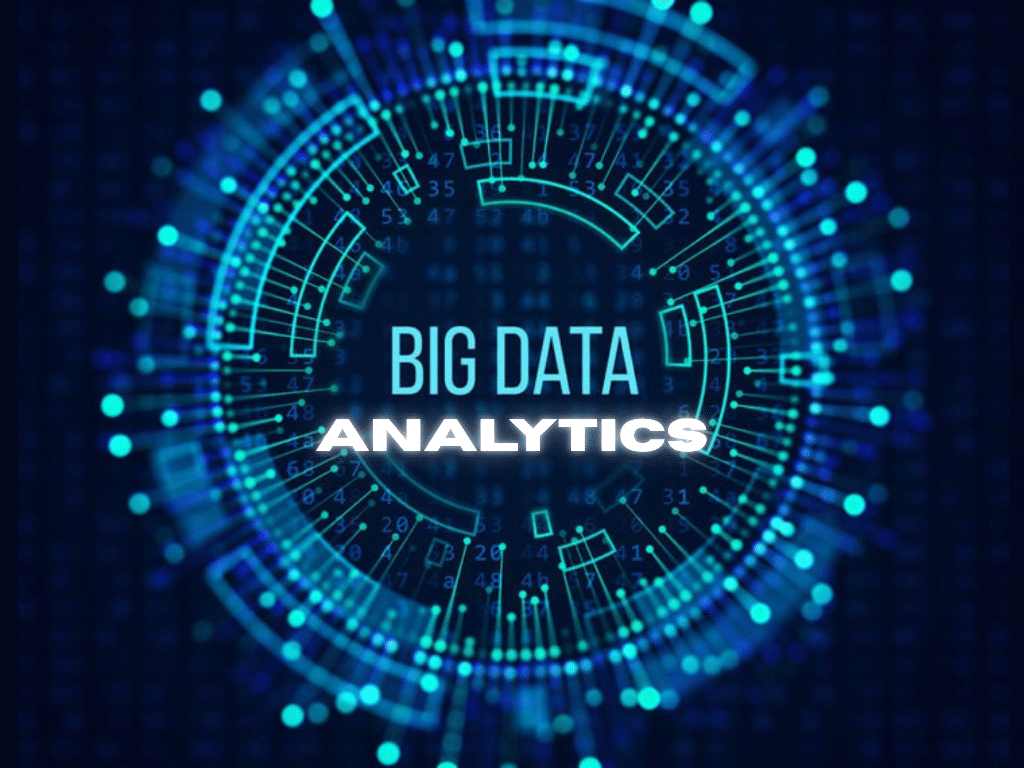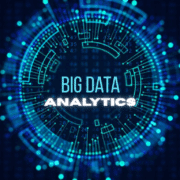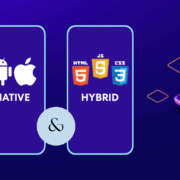AI for Big Data Analytics: Scalable Algorithms and Real-Time Insights
Do you know that more than 328.77 million terabytes of data are generated every day globally?
This astonishing surge in data generation offers organizations a chance to extract valuable insights, helping them make quick and informed decisions. However, Big Data Analytics is not enough to analyze such massive amounts of data.
That’s why organizations are now turning to artificial intelligence, or AI.
AI for Big Data Analytics has emerged as the new norm for businesses to gain real-time insights and maintain competitive agility using big data. According to a report by Statista, the global big data market is projected to reach a valuation of $103 billion by 2027 with a CAGR of 10.9%.
This explosive growth of Big Data Analytics signifies that businesses spanning across sectors like e-commerce, healthcare, fintech, and application development must embrace the power of AI for Big Data Analytics to stand out.
This blog is all about AI for Big Data Analytics, explaining how it works and how it benefits businesses with scalable algorithms and real-time insights.
Understanding AI for Big Data Analytics
Artificial Intelligence for Big Data Analytics, often referred to as AI in Big Data Analytics, is the fusion of two cutting-edge technologies: Artificial Intelligence and Big Data. It involves using AI-driven algorithms and machine learning techniques to analyze, interpret, and derive actionable insights from large and complex datasets.
In industries like multiplatform mobile app development, AI for Big Data Analytics serves as a powerful tool to convert raw data into strategic assets, driving informed decision-making and gaining a competitive edge in respective industries. It also enables businesses to deliver better customer personalization and user experiences.
How AI and Big Data Analytics Work Together
AI and Big Data Analytics are not just two complementary technologies; they are a meticulous duo that works interdependently to deliver exceptional results. The synergy between the two is demonstrated by an extensive process that involves leveraging the best functionalities of both worlds.
Here’s a breakdown of how AI and Big Data Analytics work together synchronously, empowering industries like website development services:
Data Collection
Big Data encompasses the collection of vast amounts of structured and unstructured data from various sources, including sensors, social media, customer interactions, and more. This data forms the foundation for AI models.
Data Storage and Management
Big Data technologies, such as Spark and Hadoop, facilitate the storage and management of datasets generated from sources like application development. This infrastructure ensures that the data is easily accessible for AI algorithms.
Data Preprocessing
Before AI models for Big Data Analytics can analyze the data, it often requires preprocessing. This step involves cleaning, transforming, and structuring the data to make it suitable for AI and machine learning models.
Model Integration
Machine learning algorithms, a subset of AI, are then applied to the prepared data. These algorithms can include unsupervised learning for pattern recognition, supervised learning for prediction, and reinforcement learning for decision-making for web development services.
Model Training
AI models are then trained on historical data to learn patterns and relationships. Once the models are trained, they can make predictions or decisions based on new, incoming data in real time, even from large amounts.
Insight Generation
The final output of this process is actionable insights. AI algorithms reveal hidden patterns, anomalies, trends, and predictions from Big Data, which can be used for various purposes such as optimizing multiplatform mobile app development.
Best AI Models for Big Data Analytics
AI for Big Data Analytics is an extensive landscape, encompassing various AI models and algorithms to enhance the outputs of Big Data. As there’s no one-size-fits-all solution in this case, businesses with custom iOS app development services must understand the different AI models and choose the right one.
The following are some AI models that have gained prominence in the world of Big Data Analytics:
Machine Learning
Machine learning is a fundamental component of AI for Big Data Analytics. It includes various techniques, like supervised learning and unsupervised learning, used for different purposes. For example, supervised learning is used for classification and regression tasks, making it suitable for predictive analytics.
Deep Learning
Deep learning is another form of Machine learning, but a more advanced one. It uses neural networks with multiple layers for data processing in environments like application development. It is especially effective for tasks that require high accuracy in pattern recognition, such as speech recognition or image classification.
Computer Vision
Computer vision AI models enable systems to interpret and understand visual information from the collected data, including images and videos. These models are highly useful for tasks like image recognition, object detection, and facial recognition, which can be applied to various Big Data scenarios.
Reinforcement Learning
In cases where decision-making is crucial, such as custom iOS app development services, reinforcement learning algorithms can be employed. They are well-suited for optimizing complex systems and processes, such as supply chain management or autonomous vehicles, as they learn through interactions.
Natural Language Processing (NLP)
Natural Language Processing, or NLP, is a subset of AI that focuses on the interaction between computers and human language. It is particularly valuable for analyzing unstructured textual data at scale for multiplatform mobile app development to enhance user experience and optimize business operations.
Benefits of AI for Big Data Analytics in Application Development
Critical sectors like application development have greatly benefited from the rise of AI for Big Data Analytics. Due to these benefits, the utilization of app development has skyrocketed for various businesses across industries. For organizations stepping into the world of app development, leveraging AI for Big Data Analytics is a must.
Let’s take a look at some of the prominent benefits that AI for Big Data Analytics offers in application and web development:
Enhanced User Personalization
AI-driven Big Data Analytics enables hyper-personalized experiences in application and software development by analyzing real-time user behavior, preferences, and interactions, resulting in more engaging and intuitive digital products.
Real-Time Insights
By processing vast datasets in real time, AI automates insights generation. It eliminates delays in decision-making, helping businesses quickly respond to performance issues, market trends, or user behavior without manual intervention.
Optimized Multi-Platform Integration
AI ensures seamless performance across devices and platforms by using Big Data insights to identify compatibility issues and usage patterns in applications developed using multiplatform mobile app development.
Enhanced Scalability with Scalable Algorithms
The use of scalable AI algorithms for Big Data Analytics enables businesses to enhance the scalability of their applications. Scalable AI models can easily analyze and process varying amounts of data generated from applications.
Intelligent Automation for Custom Apps
For custom iOS app development services, AI streamlines testing, bug detection, and content delivery. It reduces human workload by automating routine tasks, accelerating time-to-market while maintaining high performance.
Conclusion
The ability of AI for Big Data Analytics to turn data into a strategic asset is a game-changer for modern businesses. It not only allows organizations to optimize operations and enhance user experiences, but also enables them to stay ahead of market trends and unlock new opportunities for business growth.
For businesses working with application and website development services to create unique digital solutions, embracing the synergy of AI and Big Data will help them unlock new possibilities. These technologies will enable them to thrive in the era of data-driven intelligence and embark on a transformative journey.




